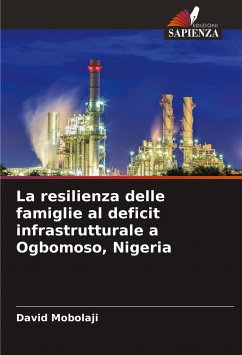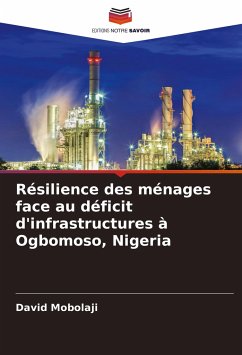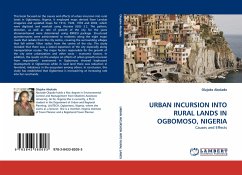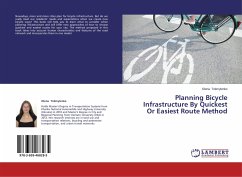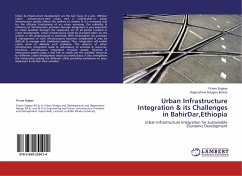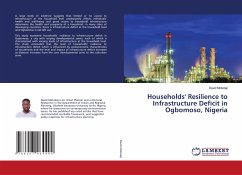
Households' Resilience to Infrastructure Deficit in Ogbomoso, Nigeria
Versandkostenfrei!
Versandfertig in 6-10 Tagen
40,99 €
inkl. MwSt.

PAYBACK Punkte
20 °P sammeln!
A large body of evidence suggests that limited or no access to infrastructure at the household level unpleasantly affects individuals' health and well-being and good access to household infrastructure determines the health and prosperity of a household. In many cities of developing countries, there is infrastructure deficit at the household level and Ogbomoso is not left out.This study examined households' resilience to infrastructure deficit in Ogbomoso, a city with varying developmental zones, each of which is characterised with varying levels of infrastructure at the household level. The st...
A large body of evidence suggests that limited or no access to infrastructure at the household level unpleasantly affects individuals' health and well-being and good access to household infrastructure determines the health and prosperity of a household. In many cities of developing countries, there is infrastructure deficit at the household level and Ogbomoso is not left out.This study examined households' resilience to infrastructure deficit in Ogbomoso, a city with varying developmental zones, each of which is characterised with varying levels of infrastructure at the household level. The study concluded that the level of households' resilience to infrastructure deficit which is influenced by socioeconomic characteristics of households and the level and impact of infrastructure deficit increases as distance increases from the core developmental zone to the suburban zone.



